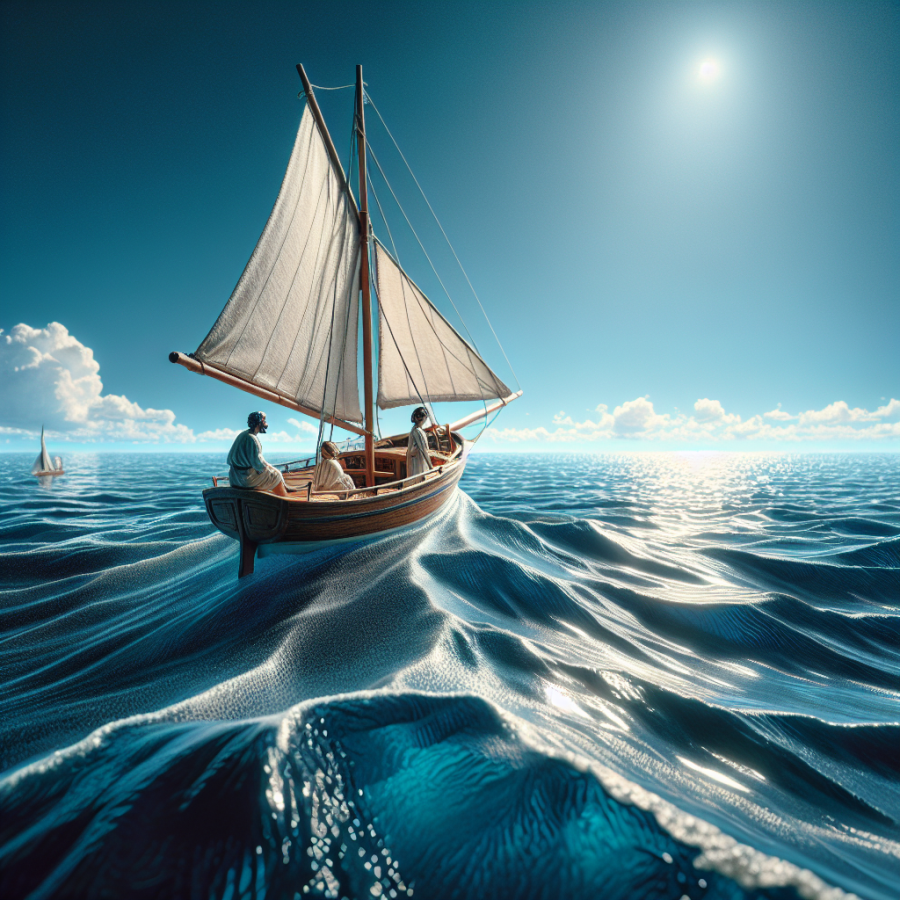Steering Through Independence: The Practicalities of Freeboating Lifestyle
Steering through the waves and embracing the tranquility of open waters, freeboating represents more than just a hobby; it's a way of life for many seafaring enthusiasts. This lifestyle allows individuals to experience unparalleled levels of freedom, self-reliance, and intimacy with the elements. However, along with the numerous joys come the various practicalities that must be navigated to ensure a safe and sustainable freeboating experience. Here are several practical aspects to consider for those looking to steer their way through the independence of the freeboating lifestyle.
Firstly, a comprehensive understanding of navigation is indispensable. Modern freeboaters need to be well-versed in both traditional chart plotting and the use of electronic navigational systems such as GPS and RADAR. While electronic systems offer convenience and accuracy, they are prone to failure, thus knowing how to read nautical maps, utilize a compass, and understand the buoys and markers is essential for safe navigation, particularly in challenging weather conditions or remote locations.
Maintenance and repair expertise is another crucial skill set. Freeboating requires a hands-on approach to keeping the vessel in top condition. You have to embrace the role of an engineer, mechanic, and plumber all at once. Basic skills in engine troubleshooting, sail repair, electrical systems maintenance, and hull integrity checks can save not only money but also your voyage when professional services are oceans away.
Emergency preparedness is a topic that cannot be overstressed. Safety equipment such as life jackets, flares, EPIRBs (Emergency Position Indicating Radio Beacons), fire extinguishers, and life rafts should be on board, regularly checked, and in easily accessible locations. Knowledge of first aid and the ability to respond to medical emergencies is a must, as immediate medical assistance is often not available. Additionally, creating an emergency plan and having periodic safety drills can make a substantial difference in crisis situations.
Weather is a fickle companion for a freeboater. Staying up-to-date with weather forecasts and understanding meteorological patterns is vital for planning routes and avoiding severe conditions. Recognizing the signs of impending storms or changes in weather can prevent a leisurely sail from turning into a harrowing ordeal.
Legal understanding is also part of the freeboating lifestyle. This includes knowledge of international maritime law, local regulations, licensing, and insurance requirements.
Read also:
Exploring the Ancient Martial Art of Okinawan Kobudō
Embracing the Uncharted: The Allure of Freeboating Adventures
Freeboating, often referred to as the purest form of marine navigation, is a passion and a pastime for those who seek adventure beyond the beaten path. As freeboaters, individuals take to the seas with a sense of independence and self-reliance that is unmatched in other forms of boating. This liberating experience allows mariners to explore the waterways without the constraints of scheduled charts, predetermined marinas, or even the reliance on modern technology for navigation.
Understanding the Draw of Freeboating
The allure of freeboating lies in its fusion of challenge and serenity. Freeboaters often speak of the unique satisfaction found in plotting a course that is entirely their own, relying on their skills and instincts to guide them. This connection with the sea, ungoverned by the rigidity of planned routes, allows for an intimate and personal journey.
For many, the appeal of freeboating is also in the discovery—finding secluded anchorages, untouched natural landscapes, and experiencing the culture of remote coastal communities that few have the chance to witness. It invites a slower pace of life, where the journey itself becomes the destination and each moment on the water is savored.
The Skills and Knowledge Essential for Freeboating
Navigating the uncharted waters requires a well-honed set of skills. Freeboaters must be adept at reading the water, understanding weather patterns, and have a firm grasp of seamanship. Skills in celestial navigation, although no longer a necessity, are often prized as they add to the sense of connection with the maritime world and its history. Mechanical aptitude is also critical, as freeboaters must maintain and repair their vessels independently.
Safety is paramount on any boating adventure, but it takes on a new level of importance when one is far from the typical support systems. A comprehensive understanding of safety protocols, including how to handle medical emergencies and the functioning of emergency signaling equipment, can make the difference in critical situations.
The Environmental and Physical Challenges of Freeboating
Freeboaters often face environmental challenges that require resilience and adaptability. Varying sea states, weather changes, and navigation around natural hazards demand a level of physical and mental stamina that is as thrilling as it is demanding.
Navigating in remote areas also bears the responsibility of environmental stewardship. Freeboaters typically operate under a code of sustainability, understanding the importance of minimizing their impact on the marine ecosystems they visit.




